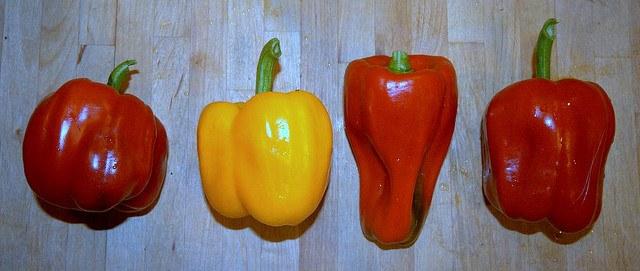
Many of us Generation Xers grew up around grandparents who survived the Great Depression. My own grandparents used to say, “Waste not, want not.” They pounded it into me to not waste food. I really try to not waste food and only buy the fruits and vegetables I need. I cook in smaller batches so I actually eat leftovers. However, not all food waste is on the consumer end. Much of it occurs on the farm, at the distributors, in the packaging process, or at the grocery store.
Food waste really is a big problem in the U.S. where around 25 to 40 percent is wasted. There are major inefficiencies in the American food system, as a National Resources Defense Council (NRDC) paper points out. In 2008, food losses in the U.S. totaled an estimated 43 billion pounds, or 10 percent of the total food supply at the retail level. However, the losses that retail chains are responsible for are even greater, according to the NRDC. The USDA estimates that supermarkets lose $15 billion a year in unsold fruits and vegetables.
There are many different reasons why grocery store chains are responsible for so much food loss and one of the reasons has to do with consumers. We tend to not pick fruits and vegetables that are misshapen, despite the fact that they are just as tasty and nutritious as their better looking counterparts. One grocery store chain is taking a gamble on selling this imperfect, perfectly edible produce. That chain is Raley’s and it will launch an imperfect produce program in July.
Raley’s will partner with Imperfect Produce to help sell imperfect looking fruits and vegetables. The grocery store chain will launch a pilot program in 10 Northern California stores starting in mid-July. The program is called “Real Good” and will sell imperfect produce at a lower price.
“Raley’s is proud to take a meaningful step forward to help reduce food waste in our country," said Meg Burritt, Director of Wellness & Sustainability, in a statement. “Our ‘Real Good’ produce will educate our customers about the food system, offer our growers a new pathway to market their produce, and provide greater access to produce that is aesthetically imperfect, but just as flavorful and nutritious.”
As more stores adopt programs to reduce food waste, food waste overall will be reduced in the U.S. That will be good news. Food should not be wasted anywhere. It is particularly sad that it is wasted in the U.S. where there is an abundance of produce but many who are food insecure. According to Feeding America, 49.1 million Americans lived in food insecure households in 2013. Perhaps discounting imperfect produce will help more families afford the fruits and vegetables all of us need to be healthy.
Photo: Flickr/David Billingham

Gina-Marie is a freelance writer and journalist armed with a degree in journalism, and a passion for social justice, including the environment and sustainability. She writes for various websites, and has made the 75+ Environmentalists to Follow list by Mashable.com.














